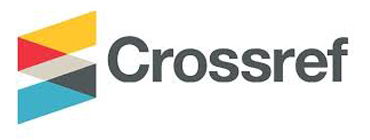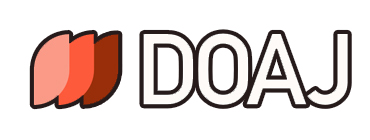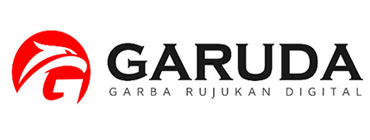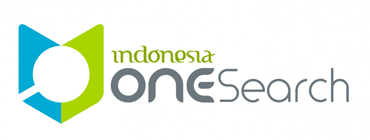EKSPLORASI PENGETAHUAN GURU IPA SMP TENTANG PEMBELAJARAN BERDIFERENSIASI DALAM KURIKULUM MERDEKA : PENGUKURAN BERDASARKAN COMPLEX MULTIPLE-CHOICE SURVEY
Abstract
Full Text:
PDFReferences
Alderson, P. (2020). Powerful knowledge and the curriculum: Contradictions and dichotomies. British Educational Research Journal, 46(1), 26–43. https://doi.org/10.1002/berj.3570
Alvunger, D. (2018). Teachers’ curriculum agency in teaching a standards‐based curriculum. The Curriculum Journal, 29(4), 479–498. https://doi.org/10.1080/09585176.2018.1486721
Antoniou, P., Kyriakides, L., & Creemers, B. P. M. (2015). The dynamic integrated approach to teacher professional development: Rationale and main characteristics. Teacher Development, 19(4), 535–552. https://doi.org/10.1080/13664530.2015.1079550
Axinn, W. G., Wagner, J., Couper, M., & Crawford, S. (2021). Applying responsive survey design to small-scale surveys: Campus surveys of sexual misconduct. Sociological Methods & Research, 004912412110312. https://doi.org/10.1177/00491241211031270
Bernacki, M. L., Greene, M. J., & Lobczowski, N. G. (2021). A systematic review of research on personalized learning: Personalized by whom, to what, how, and for what purpose(s)? Educational Psychology Review, 33(4), 1675–1715. https://doi.org/10.1007/s10648-021-09615-8
Bondie, R. S., Dahnke, C., & Zusho, A. (2019). How does changing “one-size-fits-all” to differentiated instruction affect teaching? Review of Research in Education, 43(1), 336–362. https://doi.org/10.3102/0091732X18821130
Bravo González, P., & Reiss, M. J. (2021). Science teachers’ views of creating and teaching Big Ideas of science education: Experiences from Chile. Research in Science & Technological Education, 1–21. https://doi.org/10.1080/02635143.2021.1919868
Brigandi, C. B., Gilson, C. M., & Miller, M. (2019). Professional development and differentiated instruction in an elementary school pullout program: A gifted education case study. Journal for the Education of the Gifted, 42(4), 362–395. https://doi.org/10.1177/0162353219874418
Chandra Handa, M. (2019). Leading differentiated learning for the gifted. Roeper Review, 41(2), 102–118. https://doi.org/10.1080/02783193.2019.1585213
Chandra Handa, M. (2020). Examining students’ and teachers’ perceptions of differentiated practices, student engagement, and teacher qualities. Journal of Advanced Academics, 31(4), 530–568. https://doi.org/10.1177/1932202X20931457
Chapman, O., & An, S. (2017). A survey of university-based programs that support in-service and pre-service mathematics teachers’ change. ZDM, 49(2), 171–185. https://doi.org/10.1007/s11858-017-0852-x
Davis, E. A., Janssen, F. J. J. M., & Van Driel, J. H. (2016). Teachers and science curriculum materials: Where we are and where we need to go. Studies in Science Education, 52(2), 127–160. https://doi.org/10.1080/03057267.2016.1161701
de Paor, C. (2021). The curriculum in an era of global reform: Bobbitt’s ideas on efficiency and teacher knowledge. Journal of Curriculum Studies, 53(3), 270–278. https://doi.org/10.1080/00220272.2021.1888389
Deng, Z. (2022). Powerful knowledge, educational potential and knowledge-rich curriculum: Pushing the boundaries. Journal of Curriculum Studies, 1–19. https://doi.org/10.1080/00220272.2022.2089538
Domenech, D., Sherman, M., & Brown, J. L. (2016). Personalizing 21st century education: A framework for student success. John Wiley & Sons.
Fritz, A., Long, C., Herzog, M., Balzer, L., Ehlert, A., & Henning, E. (2020). Mismatch of the South African foundation phase curriculum demands and learners’ current knowledge. African Journal of Research in Mathematics, Science and Technology Education, 24(1), 10–20. https://doi.org/10.1080/18117295.2020.1724466
Gara, T. V., Farkas, G., & Brouillette, L. (2022). Did consequential accountability policies decrease the share of visual and performing arts education in U.S. public secondary schools during the No Child Left Behind era? Arts Education Policy Review, 123(4), 218–235. https://doi.org/10.1080/10632913.2020.1854911
Heikkilä, M. (2021). Finnish teachers’ participation in local curriculum development: A study of processes in five school contexts. Policy Futures in Education, 19(7), 752–769. https://doi.org/10.1177/1478210320967816
Kácovský, P., Jedličková, T., Kuba, R., Snětinová, M., Surynková, P., Vrhel, M., & Urválková, E. S. (2022). Lower secondary intended curricula of science subjects and mathematics: A comparison of the Czech Republic, Estonia, Poland and Slovenia. Journal of Curriculum Studies, 54(3), 384–405. https://doi.org/10.1080/00220272.2021.1978557
Kallio, J. M., & Halverson, R. (2020). Distributed leadership for personalized learning. Journal of Research on Technology in Education, 52(3), 371–390. https://doi.org/10.1080/15391523.2020.1734508
Krzychała, S. (2020). Teacher responses to new pedagogical practices: A praxeological model for the study of teacher-driven school development. American Educational Research Journal, 57(3), 979–1013. https://doi.org/10.3102/0002831219868461
Li, K. C., & Wong, B. T.-M. (2021). Features and trends of personalised learning: A review of journal publications from 2001 to 2018. Interactive Learning Environments, 29(2), 182–195. https://doi.org/10.1080/10494820.2020.1811735
Magableh, I. S. I., & Abdullah, A. (2021). The Impact of differentiated instruction on students’ reading comprehension attainment in mixed-ability classrooms. Interchange, 52(2), 255–272. https://doi.org/10.1007/s10780-021-09427-3
Mahoney, J., & Hall, C. (2017). Using technology to differentiate and accommodate students with disabilities. E-Learning and Digital Media, 14(5), 291–303. https://doi.org/10.1177/2042753017751517
McClune, B., & Jarman, R. (2010). Critical reading of science‐based news reports: Establishing a knowledge, skills and attitudes framework. International Journal of Science Education, 32(6), 727–752. https://doi.org/10.1080/09500690902777402
McHugh, D., Shaw, S., Moore, T. R., Ye, L. Z., Romero-Masters, P., & Halverson, R. (2020). Uncovering themes in personalized learning: Using natural language processing to analyze school interviews. Journal of Research on Technology in Education, 52(3), 391–402. https://doi.org/10.1080/15391523.2020.1752337
Mills, M., Monk, S., Keddie, A., Renshaw, P., Christie, P., Geelan, D., & Gowlett, C. (2014). Differentiated learning: From policy to classroom. Oxford Review of Education, 40(3), 331–348. https://doi.org/10.1080/03054985.2014.911725
Neuman, S. B., & Danielson, K. (2021). Enacting Content-rich curriculum in early childhood: The role of teacher knowledge and pedagogy. Early Education and Development, 32(3), 443–458. https://doi.org/10.1080/10409289.2020.1753463
Nian, P. (2022). The management of teacher performance at Madrasah Ibtidaiyah Terpadu Al Ihsan in Selat Lancang, Tanjungbalai. Jurnal Tarbiyah, 29(1), 132–142. https://doi.org/10.30829/tar.v29i1.1380
Nieveen, N., & Folmer, E. (2013). Formative evaluation in educational design research. In T. Plomp & N. Nieveen (Eds.), Educational Design Research – Part A: An Introduction (pp. 152–169). Netherlands Institute for Curriculum Development.
Opitz, S. T., Harms, U., Neumann, K., Kowalzik, K., & Frank, A. (2015). Students’ energy concepts at the transition between primary and secondary school. Research in Science Education, 45(5), 691–715. https://doi.org/10.1007/s11165-014-9444-8
Orlich, D. C., Harder, R. J., Callahan, R. C., Trevisan, M. S., & Brown, A. H. (2010). Teaching strategies: A guide to effective instruction (9th ed.). Wadsworth Publishing.
Pepin, B., & Gueudet, G. (2018). Curriculum resources and textbooks in mathematics education. In Encyclopedia of Mathematics Education (pp. 1–5). Springer International Publishing. https://doi.org/10.1007/978-3-319-77487-9_40-7
Scarparolo, G., & MacKinnon, S. (2022). Student voice as part of differentiated instruction: Students’ perspectives. Educational Review, 1–18. https://doi.org/10.1080/00131911.2022.2047617
Shemshack, A., & Spector, J. M. (2020). A systematic literature review of personalized learning terms. Smart Learning Environments, 7(1), 33. https://doi.org/10.1186/s40561-020-00140-9
Thapliyal, M., Ahuja, N. J., Shankar, A., Cheng, X., & Kumar, M. (2022). A differentiated learning environment in domain model for learning disabled learners. Journal of Computing in Higher Education, 34(1), 60–82. https://doi.org/10.1007/s12528-021-09278-y
Thuneberg, H., Salmi, H., Vainikainen, M.-P., Hienonen, N., & Hautamäki, J. (2022). New curriculum towards Big ideas in science education. Teachers and Teaching, 28(4), 440–460. https://doi.org/10.1080/13540602.2022.2062739
Tomlinson, C. A. (2017). How to differentiate instruction in academically diverse classrooms (3rd ed.). ASCD.
Ubat, U. (2022). The role of a principal in developing the professionality of teachers at SMP Negeri 10 in Tanjungbalai. Jurnal Tarbiyah, 29(1), 163–173. https://doi.org/10.30829/tar.v29i1.1383
Vázquez-Alonso, Á., Manassero-Mas, M.-A., & Acevedo-Díaz, J.-A. (2006). An analysis of complex multiple-choice science–technology–society items: Methodological development and preliminary results. Science Education, 90(4), 681–706. https://doi.org/10.1002/sce.20134
Weirich, S., Hecht, M., Penk, C., Roppelt, A., & Böhme, K. (2017). Item position effects are moderated by changes in test-taking effort. Applied Psychological Measurement, 41(2), 115–129. https://doi.org/10.1177/0146621616676791
Zólyomi, A. (2022). Exploring Hungarian secondary school English teachers’ beliefs about differentiated instruction. Language Teaching Research, 136216882211147. https://doi.org/10.1177/13621688221114780
DOI: http://dx.doi.org/10.30829/tar.v29i2.1812
Refbacks
- There are currently no refbacks.

Jurnal Tarbiyah by UIN Sumatera Utara Medan is licensed under a Creative Commons Attribution-NonCommercial-ShareAlike 4.0 International License.
Based on a work at http://jurnaltarbiyah.uinsu.ac.id/index.php/tarbiyah.
Permissions beyond the scope of this license may be available at http://jurnaltarbiyah.uinsu.ac.id/index.php/tarbiyah/about/submissions#copyrightNotice.
















